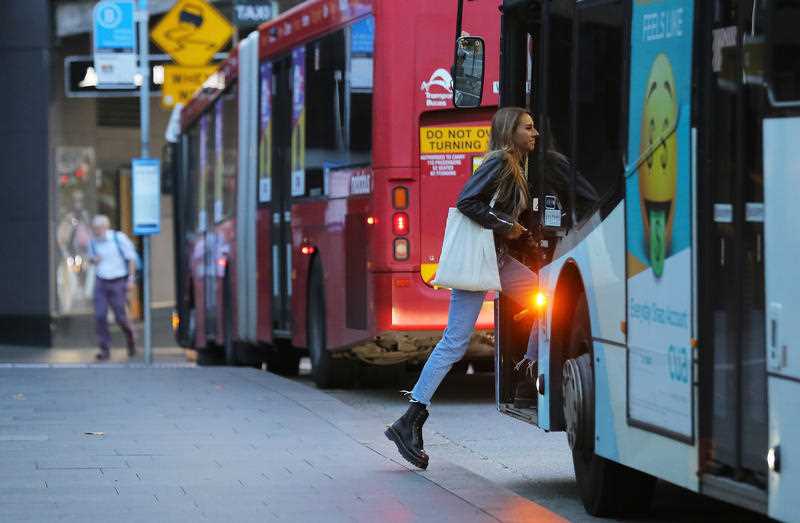How transport in one Aussie state will change due to the coronavirus
Transport in NSW is changing as restrictions ease amid the coronavirus pandemic.
On Friday, the state moved to reopen restaurants and pubs for people to enjoy sit-down meals with a limit of 10 people per venue.
NSW also reopened places of worship, a number of non-essential stores went back to trading and more children are returning to schools for face-to-face learning.
With the eased restrictions, and added incentives, to leave the house NSW Premier Gladys Berejiklian announced a number of changes to the state’s public transport system on Monday.
“As we ease restrictions, we will see more activity and more people returning to work, school and university,” Ms Berejiklian said.
“Our number one priority remains keeping commuters safe so we are ensuring there are plenty of safe and efficient options to get people moving throughout our state during the pandemic.”

The government unveiled its “COVID Safe Travel Plan” which includes adding parking in Sydney’s Moore Park area from May 25, more cycling and walking options, and ongoing deep cleaning of transport vehicles.
Ms Berejiklian is also imploring commuters to travel outside of peak hour and use public transport between 10am until 2pm to take stress off the network.
NSW COVID Safe Travel Plan
Avoid peak travel: If commuters aren’t already using peak hour services don’t use them. Keep travel between 10am until 2pm or use off-peak services.
Deep cleaning and more hand sanitisers.
More cycling and walking options: NSW Government is working with councils for pop-up walkways and cycle paths. The plan is for an additional 10.3km of bike path into the city.
Parking boost: More parking will be available with “special event-style” arrangements at Moore Park. Other locations will be rolled out and special deals will be offered for all day parking.
More data will be made available on apps and social media to allow anyone using NSW Transport to plan their journey appropriately including which services have space for passengers.
“No dot, no spot”: Distinctive green dots will be used on trains, buses and ferries to indicate where people can sit or stand. If there aren’t any of these dots or spots available travellers will have to wait for the next service. Two-door buses in Sydney will be kept to 12 commuters, Freshwater ferry 245 and Waratah trains 32.
More services will be rolled out on the water with ferries and private water taxis.
Ms Berejiklian told reporters she’s encouraging commuters to travel off-peak - between 10am and 2pm each day to ensure less people are on buses and trains.
NSW Transport Minister Andrew Constance added 90 per cent of car parks in Sydney’s metro areas are currently empty.
“We also have the ability to do overflow car parks elsewhere including in places like Sydney Olympic Park,” he said.
NSW transport capacity slashed
Mr Constance said anyone living 15 minutes from work shouldn’t be using public transport at this time either.
“Take the opportunity to either ride a bike or walk,” he said.
The minister said the transport network is only able to take about 550,000 commuters each day, which is down from the usual 2.2 million.
Urban Transport and Public Health Professor Mark Stevenson, from the University of Melbourne, told Yahoo News Australia earlier this month we’ll need to “think outside the box” about transport as we ease restrictions.
Coronavirus restrictions: How each state and territory will ease their rules
Premier's startling warning: 'We will never have normal lives until Pandemic is over'
Professor Stevenson, who’s forecasted the probability of COVID-19’s elimination in Australia, said physical distancing “needs to be maintained”.
“It means we have quite considerable requirements which our transport systems haven’t seen before,” he said.
“It’s certainly going to be a challenge.”

He added workplaces will need to “stagger” people returning to the office so we “don’t overburden” transport networks.
“We could have schools start at different times. Maybe some services offer one or two days a week in the office while the rest work from home,” he said.
Do you have a story tip? Email: newsroomau@yahoonews.com.
You can also follow us on Facebook, Instagram and Twitter and download the Yahoo News app from the App Store or Google Play.





